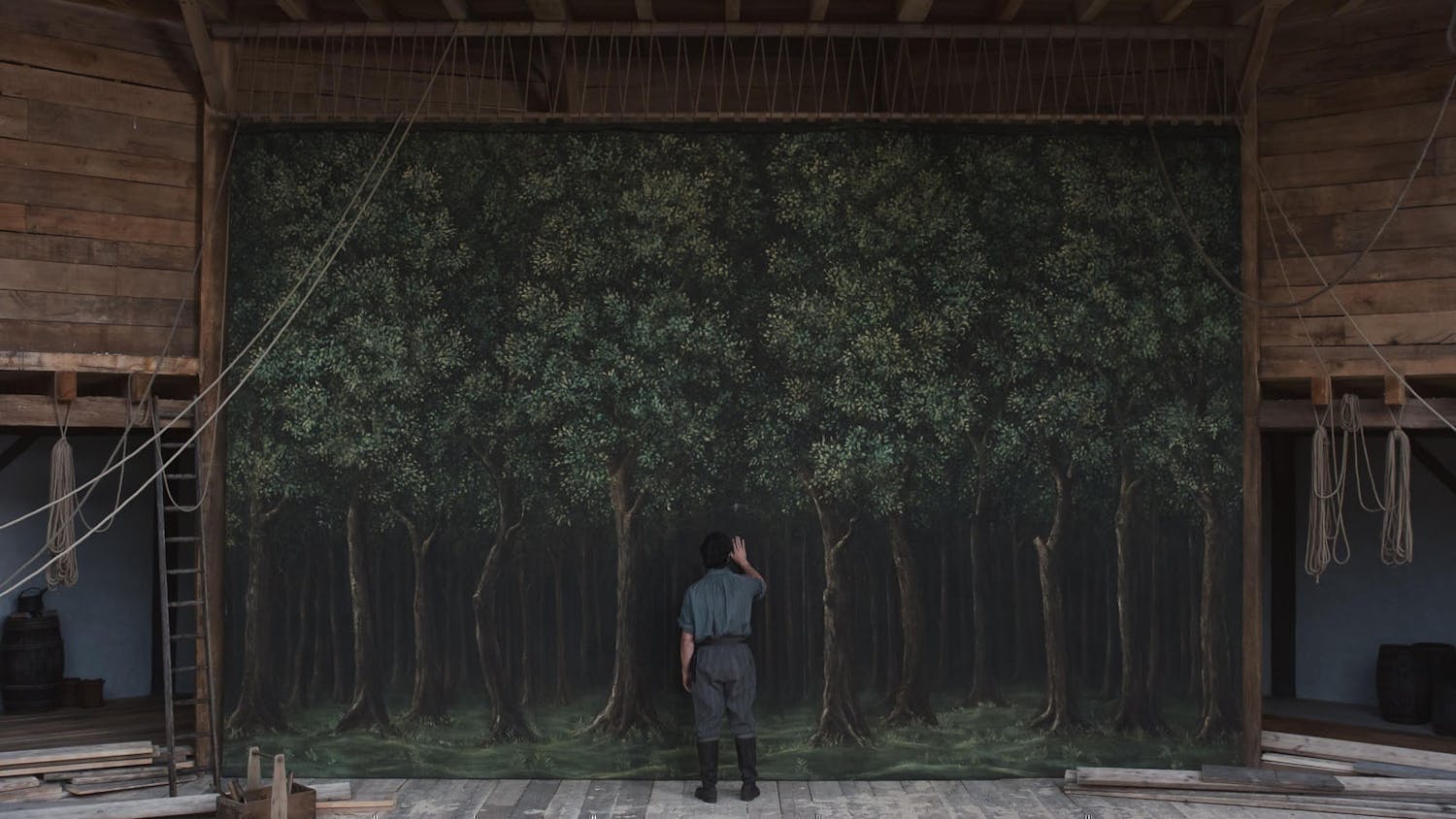Wesley Lowery — journalist, author and new executive editor of the School of Communication’s Investigative Reporting Workshop — is sparking conversations about race with his new book, “American Whitelash: A Changing Nation and the Cost of Progress.”
On Sept. 19, Lowery discussed the new book with WAMU’s Kojo Nnamdi and Jenny Gathright at an event hosted in the School of International Service building. After the event, Lowery took time to talk to students interested in joining the Investigative Reporting Workshop.
“American Whitelash” delves into how the backlash against Barack Obama's presidency paved the way for Donald Trump’s success in the 2016 presidential election and the increase in white nationalism that followed. Lowery did the reporting for this book as a full-time staff member at The Washington Post.
As a former national correspondent, Lowery covered race and justice issues. His reporting played a significant role in the Post's coverage of the 2014 police killing of Michael Brown and the subsequent unrest in Ferguson. Lowery also helped create the Post’s “Fatal Force” project, an interactive database tracking fatal police shootings since 2015. Lowery was the lead journalist on the “Fatal Force” project, and he investigated police shootings across the country.
Lowery’s first book, "They Can't Kill Us All," explores the origins of the Black Lives Matter movement and police violence. Lowery said that he wanted “American Whitelash” to examine racialized violence through a different lens.
“I had done a lot of writing through the framework of the era of the first Black presidency, and now I was interested to think about ‘what did it mean to write about race and racialized violence in the post-Black presidency?’” Lowery said. “And so, I began reporting around instances and occasions of white racial violence, people who were lashing out violently against immigrants, people of color, Black Americans, refugees, Sikhs, Muslims, and trying to grapple with the extent to which our political rhetoric in this moment feeds into this type of violence.”
In the book, Lowery emphasizes divides in how Americans viewed Barack Obama’s 2008 presidential win. According to Lowery, some Americans considered Obama’s presidency as evidence that America had overcome its racist ways, while others viewed it as a detriment to the country. These competing beliefs guided Lowery’s analysis and narrative for the book.
“I was looking primarily at the decade between Obama’s election and Charlottesville, and then trying to place the instances or the things that occurred in this decade into a context that could go back further,” Lowery said.
During the event, Lowery explained that he did not cover more recent instances of racial violence because these events are too fresh to analyze in a work like this. Still, from researching the white supremacist beliefs of Obama's most passionate detractors to scrutinizing what led to the 2016 “Unite the Right” rally in Charlottesville, Lowery had a lot to fit into the book.
Lowery also touched on his approach to choosing his interview subjects. He said that he believes interviewees who were connected to a newsworthy event are still valuable sources of information years later. This was the case for Dorian Johnson, who witnessed the police killing of Michael Brown but was largely forgotten by the media after the tragedy.
Silas Gaughran-Bedell, a junior in SOC, said he was fascinated by Lowery's approach to choosing his interview subjects.
“One thing that I found particularly interesting was what [Lowery] was saying about how people are always looking for the story right after it happens, but nobody wants to check in a few years later,” Gaughran-Bedell said. “So with Michael Brown’s friend, I think it’s very admirable that something like that gets a place to exist in his book even though we’re so far removed from the initial incident. I think that that’s something that maybe most journalists would've overlooked.”
Lowery said he had to approach his book differently than his normal work. The process of writing “American Whitelash” proved to be different from any journalistic assignment of his.
“It’s a lot longer,” he said. “You marinate for much longer. I think for me, one thing that’s hard is that I don’t start out with a thesis and then go about seeking to prove it. I start out with a question or start out hoping to be on a journey and then spend time kind of guiding my way through it.”
Sahas Wijewardene, a sophomore in SOC, said he left the event wanting to learn more about Lowery’s specialty, investigative journalism.
“It's made me a lot more interested in the topic of racial violence and it’s got me a lot more interested in investigative reporting as well,” Wijewardene said.
In June 2023, the Pulitzer Prize winner joined the SOC as the executive editor of the Investigative Reporting Workshop — a nonprofit, editorially independent newsroom based in SOC — and as an associate professor of investigative journalism.
Lowery said he is eager to receive IRW internship applications from SOC students. According to Lowery, IRW has a myriad of roles for students interested in investigative journalism, ranging from graphic design to data research. The workshop also provides financial resources and support for processes like requesting public records. Lowery said that he wants to replicate the environment of learning and experimentation that defined the newsrooms he worked in early in his career.
“I really believe that student journalists have the capacity to do top-tier journalism if given the time, space and resources and support to do so,” he said. “And so, the hope of the IRW is to create a space where journalism students can do their most ambitious work, and they can pursue their most ambitious ideas and in doing so they can learn the key components of investigative journalism.”
This article was edited by Maeve Fishel, Jordan Young and Abigail Pritchard. Copyediting done by Isabelle Kravis and Luna Jinks.





